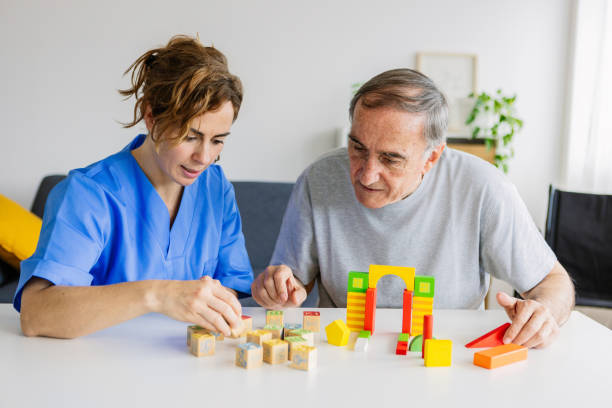As we age, maintaining mental sharpness becomes a top priority for many seniors. Keeping the brain active not only supports memory and focus but also promotes overall well-being. Fortunately, in 2025, digital brain games have become a popular, accessible way for seniors to exercise their minds and enjoy themselves at the same time.
In this article, we explore how seniors can stay mentally sharp using digital brain games, why these games are effective, and tips to get started safely.
Why Mental Fitness Matters for Seniors
Aging naturally brings changes to memory, attention, and processing speed. However, engaging in regular mental exercises can slow cognitive decline, improve problem-solving skills, and reduce the risk of dementia.
Digital brain games provide an enjoyable way to challenge the mind and keep it agile.
Benefits of Digital Brain Games for Seniors
1. Improves Memory and Recall
Games that involve pattern recognition, word puzzles, or matching can help strengthen memory pathways and improve recall ability.
2. Enhances Attention and Focus
Timed challenges and tasks requiring quick responses boost concentration and attention span.
3. Promotes Problem-Solving Skills
Strategy games encourage planning, critical thinking, and decision-making — essential cognitive skills.
4. Boosts Mood and Motivation
Playing engaging games can reduce stress, increase dopamine levels, and foster a sense of accomplishment.
5. Provides Social Connection
Many digital brain games offer multiplayer options or online communities, helping seniors stay socially active and connected.
Popular Types of Digital Brain Games for Seniors
- Puzzle Games: Sudoku, crosswords, and jigsaw puzzles
- Memory Games: Matching pairs, sequence recall
- Logic and Strategy Games: Chess, checkers, and Mahjong
- Word Games: Scrabble, word searches, and spelling challenges
- Reaction and Speed Games: Simple tasks that require fast responses
Tips for Seniors Getting Started with Digital Brain Games
1. Choose User-Friendly Apps
Look for games designed with seniors in mind — with simple interfaces, clear instructions, and adjustable difficulty levels.
2. Set Realistic Goals
Start with short sessions (10-15 minutes) and gradually increase as you become comfortable. Consistency is key.
3. Balance Screen Time
While digital games are helpful, balance them with physical activity, social interaction, and offline hobbies.
4. Stay Safe Online
Use trusted apps from official stores and avoid sharing personal information in game communities.
What Seniors Are Saying
Many seniors report feeling sharper and more confident after regularly playing brain games. Mary, 72, shares:
“I started doing daily puzzles on my tablet, and I notice I remember things better and feel more alert during the day.”
Final Thoughts
Digital brain games offer an enjoyable, effective way for seniors to maintain mental sharpness and enhance quality of life. By choosing the right games and playing regularly, seniors can exercise their brains just like their bodies, promoting long-term cognitive health.
If you or a loved one is new to digital brain games, now is a great time to start this fun mental fitness journey!

